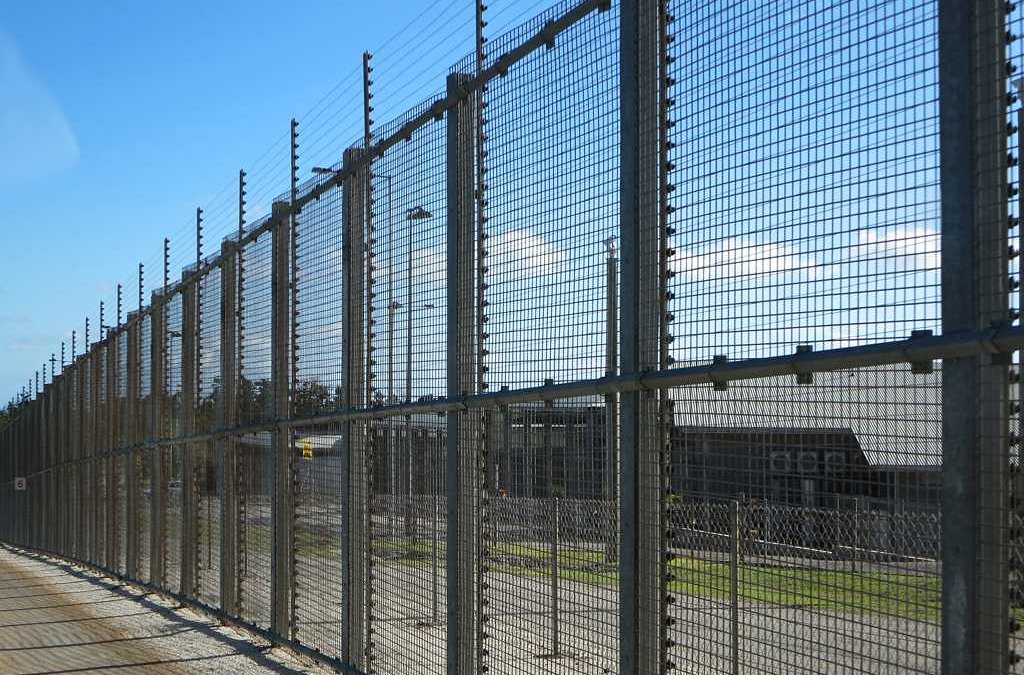WASHINGTON — The Supreme Court justices cast doubt on a private prison company’s argument that government contractors can obtain the government’s own immunity and be shielded from future litigation during oral arguments on Monday.
The private prison company, The GEO Group, has been profiting from the Trump administration due to the recent increase in ICE detention centers, and the company’s shares doubled one month after Trump was elected into office.
As a government contractor, GEO argued it was acting on behalf of the government and therefore deserved immunity under “derivative sovereign immunity,” citing a 1940 precedent case, Yearsley v. W. A. Ross Construction Co. The government has “sovereign immunity,” a legal doctrine that protects it from being sued.
The class-action lawsuit, originally filed by Alejandro Menocal in 2014, represented over 30,000 detainees from the ICE-contracted Aurora Immigration Processing Center in Colorado.
Menocal claimed that he saw GEO force other detainees to participate in “voluntary” work programs and clean common areas like bathrooms and do various jobs for $1 a day. If they refused, they would face punitive punishment, such as solitary confinement.
The U.S. 10th Circuit Court dismissed GEO’s claim of immunity in 2018. The Supreme Court agreed to hear their arguments on whether or not its immunity claim is valid and that government contractors should be allowed to immediately appeal the rejection of immunity, rather than waiting until a final judgment, under the “collateral-order doctrine.”
“The Supreme Court has never recognized ‘derivative sovereign immunity,’” said Amit Jain, Supreme Court and Appellate counsel at the MacArthur Justice Center, in an email to the Medill News Service. “There’s basically no support in legal history or Supreme Court precedent for this idea that a government contractor can derive the government’s own immunity.”
Dominic Draye, the attorney for GEO, argued that they have “immunity” under the Yearsley case.
But minutes into Draye’s oral argument, it appeared that the justices struck it down. Five of the nine justices claimed that immunity was never the point of the Yearsley case.
“It’s just odd to suggest there’s ‘derivative sovereign immunity’ in this kind of circumstance,” Justice Ketanji Brown Jackson said, prompting a back-and-forth conversation between her and Draye.
Justice Brett Kavanaugh asked Draye why the government was testifying against GEO and said that they would face a “big hurdle.”
Assistant Solicitor General Sopan Joshi, the last to testify before rebuttal, spent about 10 minutes siding with the respondent.
Justice Amy Coney Barrett critiqued Draye’s argument and asked why GEO didn’t consider including potential litigation fees in their contract.
Draye claimed that there are a variety of laws that prohibit government agencies from spending more funding than what Congress had appropriated and that contracts do not allow the government to cover all losses and damages for a contractor.
“If we were to put them in as sort of, like, overhead or something, that would be a false claim and would expose us to suit under the False Claims Act,” Draye said.
The False Claims Act holds those individuals and companies that defraud the government liable.
Joshi argued against this and said not negotiating had little to do with including overhead litigation costs and more so with competition with other private contractors.
“We don’t see a hesitance on the part of either Petitioner or CoreCivic or — or other private contractors in bidding on contracts in circuits,” Joshi said.
Justice Clarence Thomas asked both the attorney for the respondent, Jennifer Bennett, and Joshi what the subsequent actions would be to dispose of this case, which would invalidate GEO’s request for an immediate appeal.
Bennett and Joshi both asked the Court to clarify the meaning of Yearsley for future cases.
“GEO’s entire argument rests on this contention that Yearsley is a right to avoid trial,” Bennett said. “I think it’s clearly not, if you look at Yearsley itself.”
Emory Law Professor Alexander Volokh, who wrote an amicus brief in support of GEO, said he does not think the GEO Group is at fault because ICE policy is “horrible” to the Medill News Service.
“My personal view is, I think ICE is horrible,” Volokh said. “If ICE were running its own ICE facilities, things would be just as horrible. And so I don’t think that the fact that they’re using contractors makes it any more horrible.”
Jain said if GEO wins, the impact could make it much harder and more expensive for people to win when their rights are violated, especially since GEO had been taking several midstream appeals throughout the last decade.
“These kinds of delays will make it less likely that contractors are ever held accountable if they violate the law—not just detention operators like the GEO Group, which makes billions of dollars a year, but also tree-removal companies, janitorial or food service providers, and all the other millions of entities that contract with the government,” Jain said.


